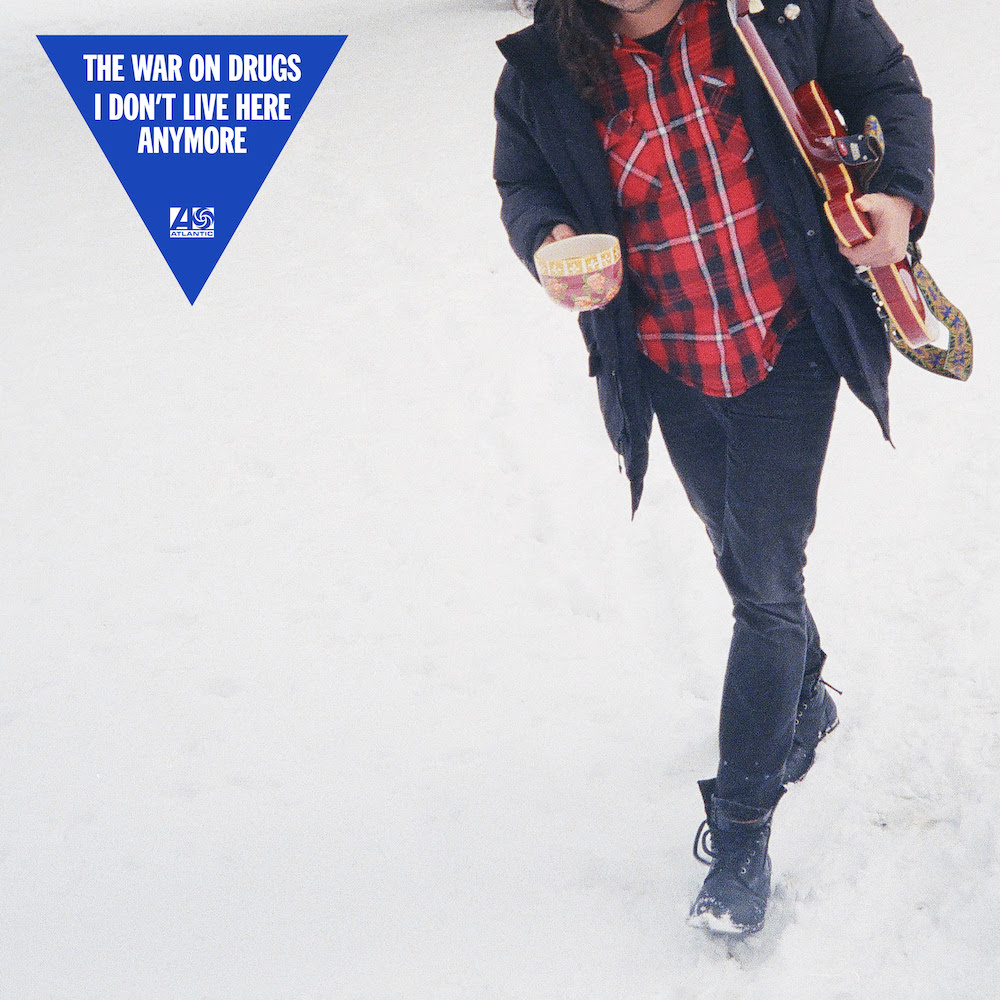Todd Haines’s I’m Not There is overtly a fictionalized take on Bob Dylan’s mythologized persona. The movie focuses on six characters, each of whom is equipped with their own background story and follows their own narrative arc, Haines commenting on the sources that contributed to Dylan’s evolution and aesthetic. On another level, however, the film addresses the elusiveness of identity, how a ‘self’ is, in reality, little more than a composite of puzzling patterns – hardwired and conditioned – held in place by the equally mysterious impulse of habit. It’s impossible to regard ‘self’ as an independent force or entity, something that functions outside a broader, integrated, and dynamic field or system. Identity is by nature interdependent.
There is much about the music of The War on Drugs, particularly their work post-2011’s Slave Ambient, that brings to mind similar considerations. 2014’s Lost in the Dream and 2017’s Grammy-winning A Deeper Understanding feature effects-laden instrumentation, moody vocals, and lyrics that evoke the ever-changing nature of relationships and existence. In terms of influences, The War on Drugs are masters of absorption and reconfiguration, such that it’s easy to overlook the clear impact of their primary progenitors: 70s and 80s Dylan, Neil Young and Crazy Horse, and post-Nebraska Springsteen, as well as Wilco’s psychedelic/experimental side and the dreampop and shoegaze playbooks. Lost in the Dream and A Deeper Understanding occur as organic manifestations of fleeting beauty, Adam Granduciel and company crafting what often seem like audial mandalas.
Their new album, I Don’t Live Here Anymore, shows the band applying effects a bit more discriminately; also, Granduciel’s voice and songwriting more often claim center stage; still, the new sequence revels in familiar approaches and sounds, including chorus-y, reverb-y, and phase-shifted swaths of sublime instrumentation. Melodies are for the most part understatedly seductive while Granduciel’s vocals radiate a weary sensitivity. “I’m always changing,” Granduciel sings on the project’s opener, “Living Proof,” alluding to his geographic travels as well as the perennial search for meaning and purpose. Toward the end of the song, Granduciel offers a minimalistic guitar solo, sustained notes wrapped in hints of feedback.
“Harmonia’s Dream” picks up the tempo, drummer Anthony LaMarca establishing an elementary yet infectious beat. Granduciel’s vocal is draped over an amalgam of crunchy guitars and ambient accents that range from sirenic to cacophonous. The track, like much of the album, emanates a mutative feel, bringing to mind a vintage lava light. On “Victim”, the bass and drums thump repetitively, engaging flourishes flicked across the soundscape like Pollockian splashes of paint.
The title track is the album’s highpoint, Granduciel at his most vocally energized. The song features some of the album’s more striking instrumental interactions, languid and choppy guitars, as well as trebly synth parts, colliding and interweaving. Particularly notable are performances by Holly Laessig and Jess Wolfe of Lucius, back-up vocals that give the track an adrenalized gospel vibe. “Rings Around My Father’s Eyes” is an imagistic tribute to the inevitability of the aging process and the courage required to live an authentic life. “No one really knows which way they’re facing,” Granduciel sings, perhaps befriending the disorientation that frequently persists regardless of one’s intentions or beliefs.
On the album’s closer, “Occasional Rain”, Patrick Berkery’s unwavering drums contrast with the track’s mercurial atmospherics. Granduciel’s melody is primitive yet catchy. Toward the end of the track, the band launches into a rhythmically based and ambient jam, Granduciel repeating “it’s only some occasional rain”, rain representing – as he sings elsewhere in the song – “the storm,” “darkness,” and “loneliness,” the innumerable setbacks that are ultimately overcome. Though I Don’t Live Here Anymore is, overall, a pensive album, the project ends with a muted optimism.
I Don’t Live Here Anymore shows The War on Drugs navigating now-templatized stylistics, constructing and delivering songs that are at once earthy and celestial, pop-conscious and contemplative. As mentioned, there’s something ungraspable about their music: referential yet original, derivative yet prototypical, memorable yet oddly irretrievable. Ponderous yet transcendent. A listener is invited to encounter the assorted boundaries of their own preferences, biases, identity – to let those hard lines dissolve.

